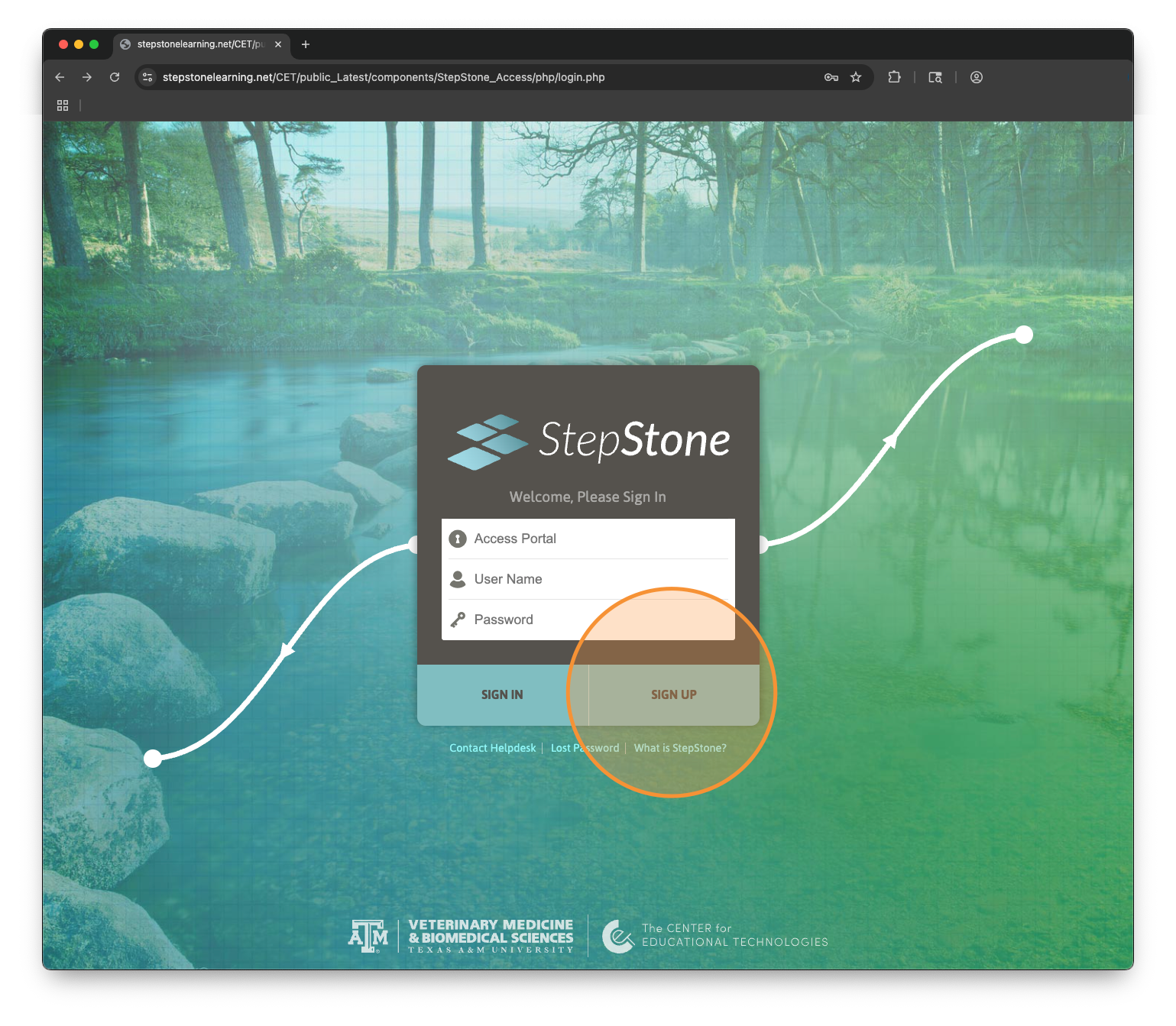
Upon selecting “Sign Up”, the page will redirect to the 30-day trial account request form. This form is required to begin the trial account creation process.
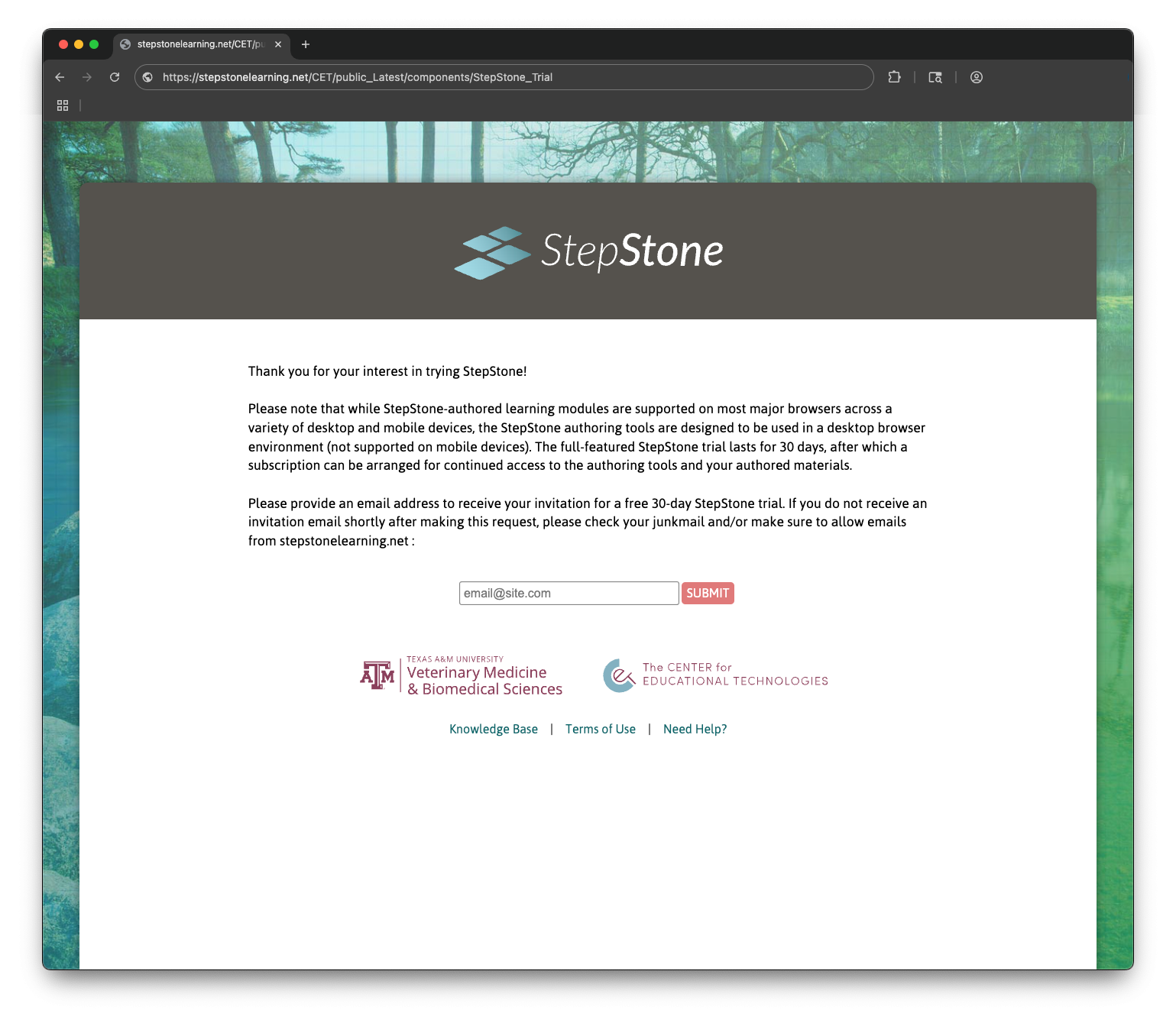
The resulting invitation email provides a uniquely-keyed URL that grants access to the setup of the trial account. A note is also provided, indicating that this keyed URL expires in 10 days.
If the invitation is NOT received, the trial candidate should check spam/junk email inboxes. The trial candidate can also attempt to “whitelist” or otherwise approve/allow email from the stepstonelearning.net domain.
Upon visiting the URL in the invitation, a simple “CAPTCHA”-type security gate activity is presented to the trial candidate. After being “solved”, the security gate activity is replaced with the setup form for creating the account.
Of note:
- The “Account ID” is the user ID for account sign-in.
- The “Account Email” can be different than the address used for requesting the trial.
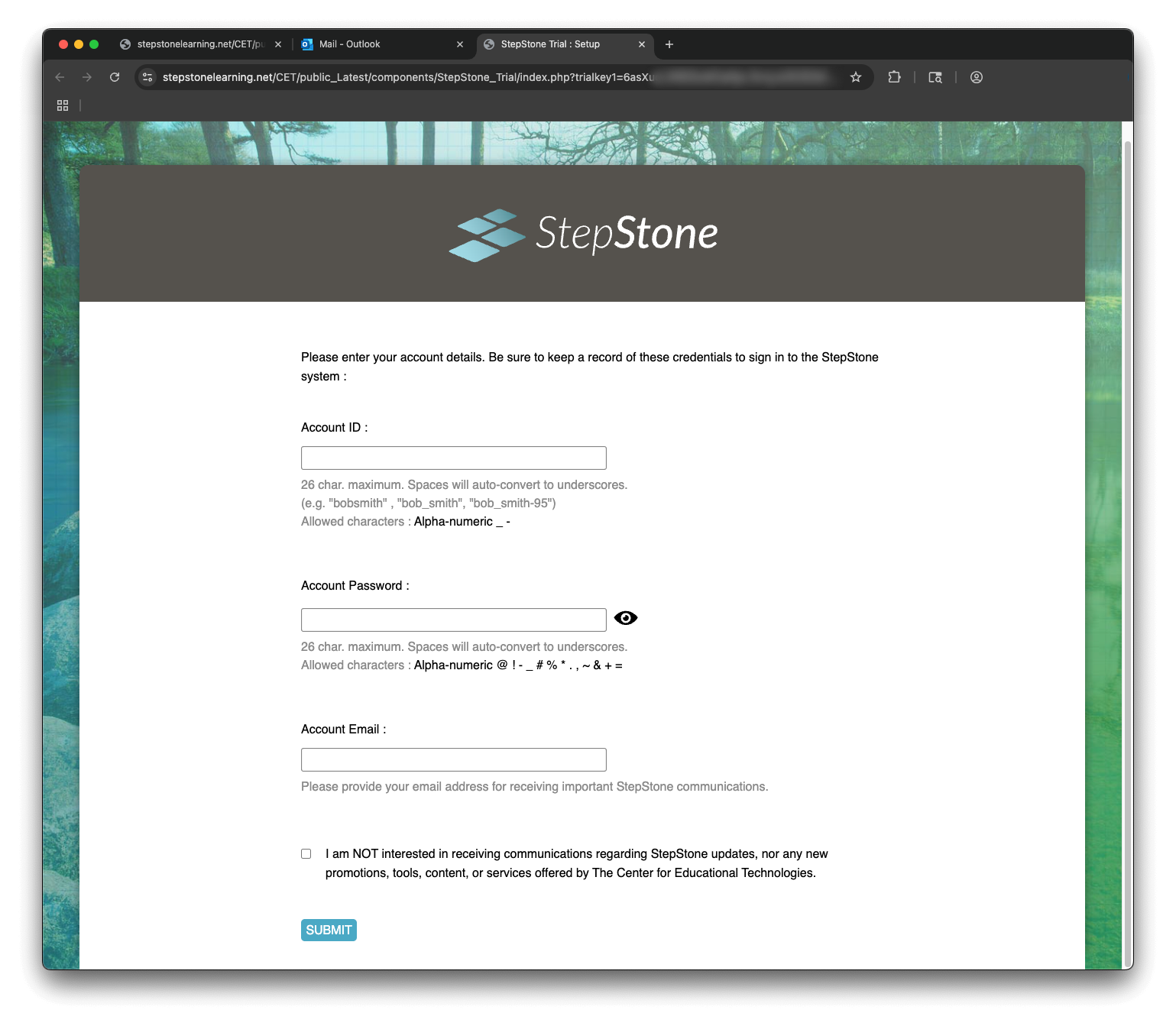
If the input trial account ID already exists in the trial account Pool, a prompt/alert is displayed asking the trial candidate to change the account ID value and re-submit the account setup form.
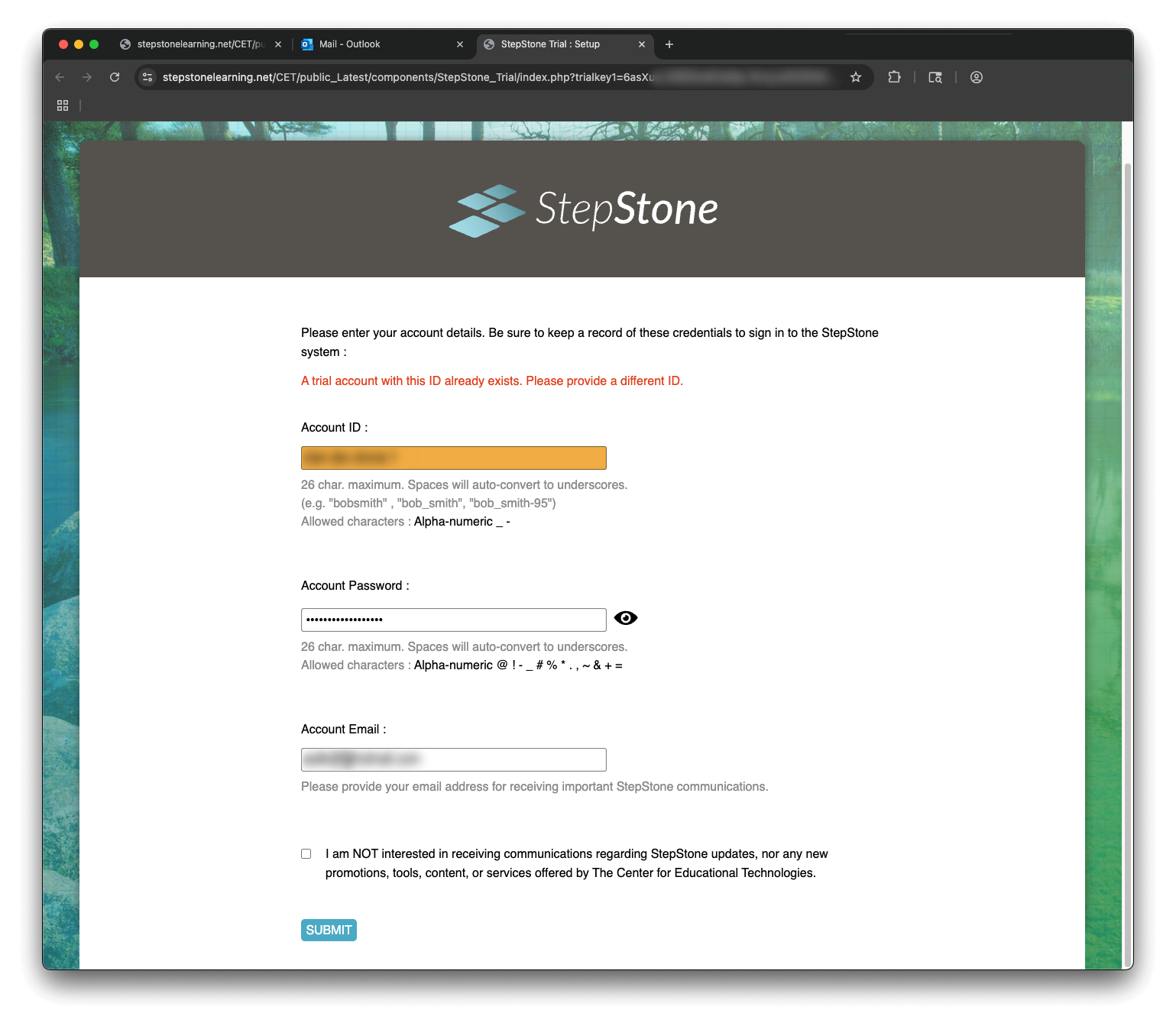
Upon successful trial account setup form submission, the form is replaced with an account-creation confirmation message. A link is provided to jump directly to the StepStone sign-in page.
A trial account activation notice email is also sent to the address provided in the account setup form. This provides the same StepStone sign-in URL from the account-creation confirmation page.
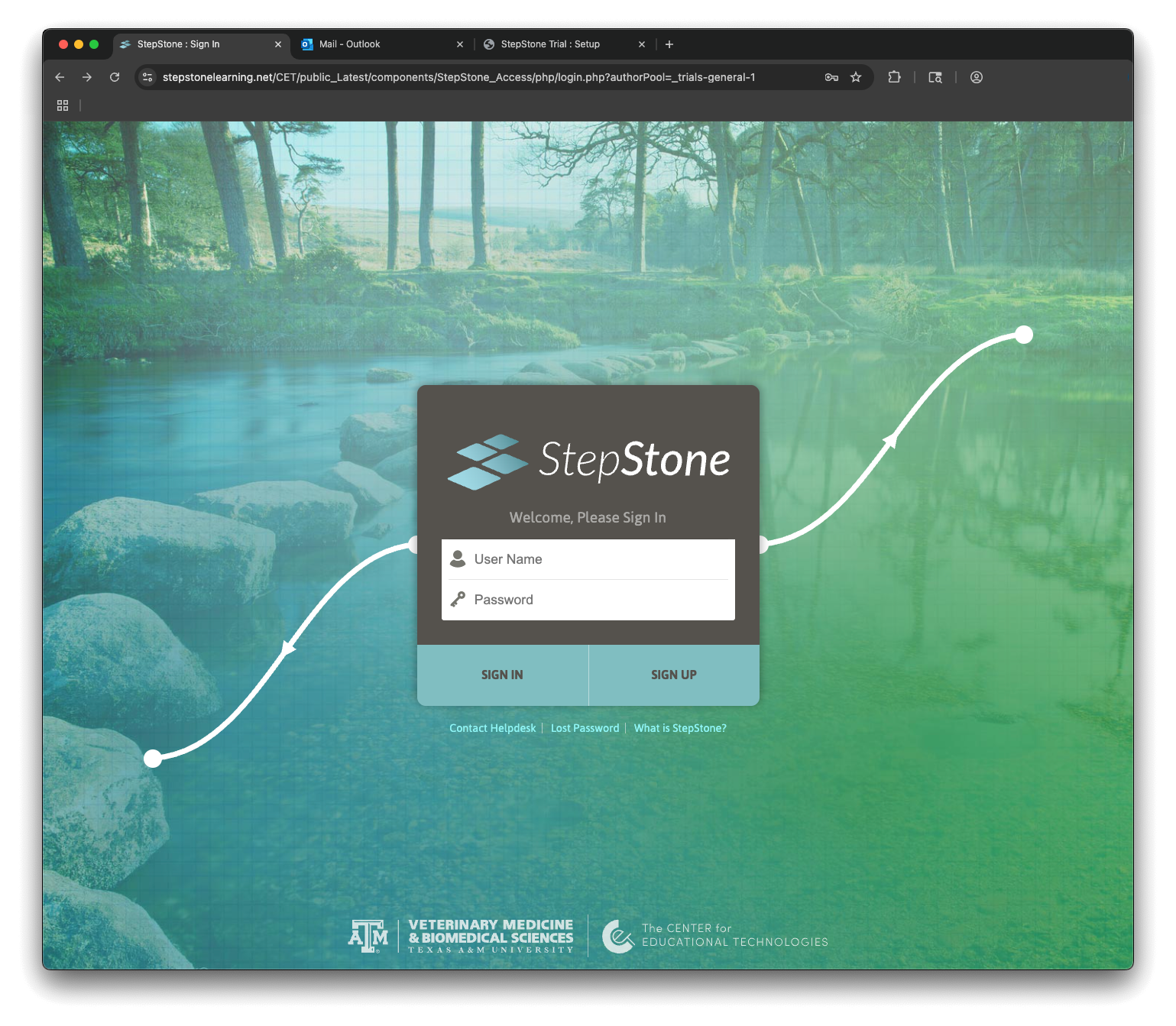
At the StepStone sign-in page, the new trial account user must manually enter the account ID and password provided during trial account setup.
After successful sign-in, the StepStone Path Builder is loaded and the new trial account user can begin authoring. Please view our other knowledgebase articles regarding the various aspects of the StepStone authoring system for more information.
Note the “Trial” indicator present next to the current tool label in the upper left of the authoring tools.

The new trial account has basic authoring access after successful sign-in, with the ability to create Paths, publish them to the Course Packager, and create and download fully functional SCORM packages.
Trial accounts differ from “regular” Author Pools in that all trial accounts are isolated from each other within the user interface. Trial users do not see other trial user accounts or Paths within the Path Builder, nor published Paths or saved Courses. In regular Author Pools, all accounts can view/utilize all of the published Paths and saved Courses/SCORMS are shared within the same Pool.
Although trial users cannot see/edit other user’s Paths/Courses, conflict-alerts will appear when attempting to use existing published Path IDs or Course IDs during Path publishing or Course packaging operations. Just like a regular StepStone account, a conflicting ID just needs to be changed so that no conflict remains.
If attempting to sign in to a StepStone trial account beyond the 30-day trial expiration date, the sign-in form will deny access and display an alert indicating the expired status.
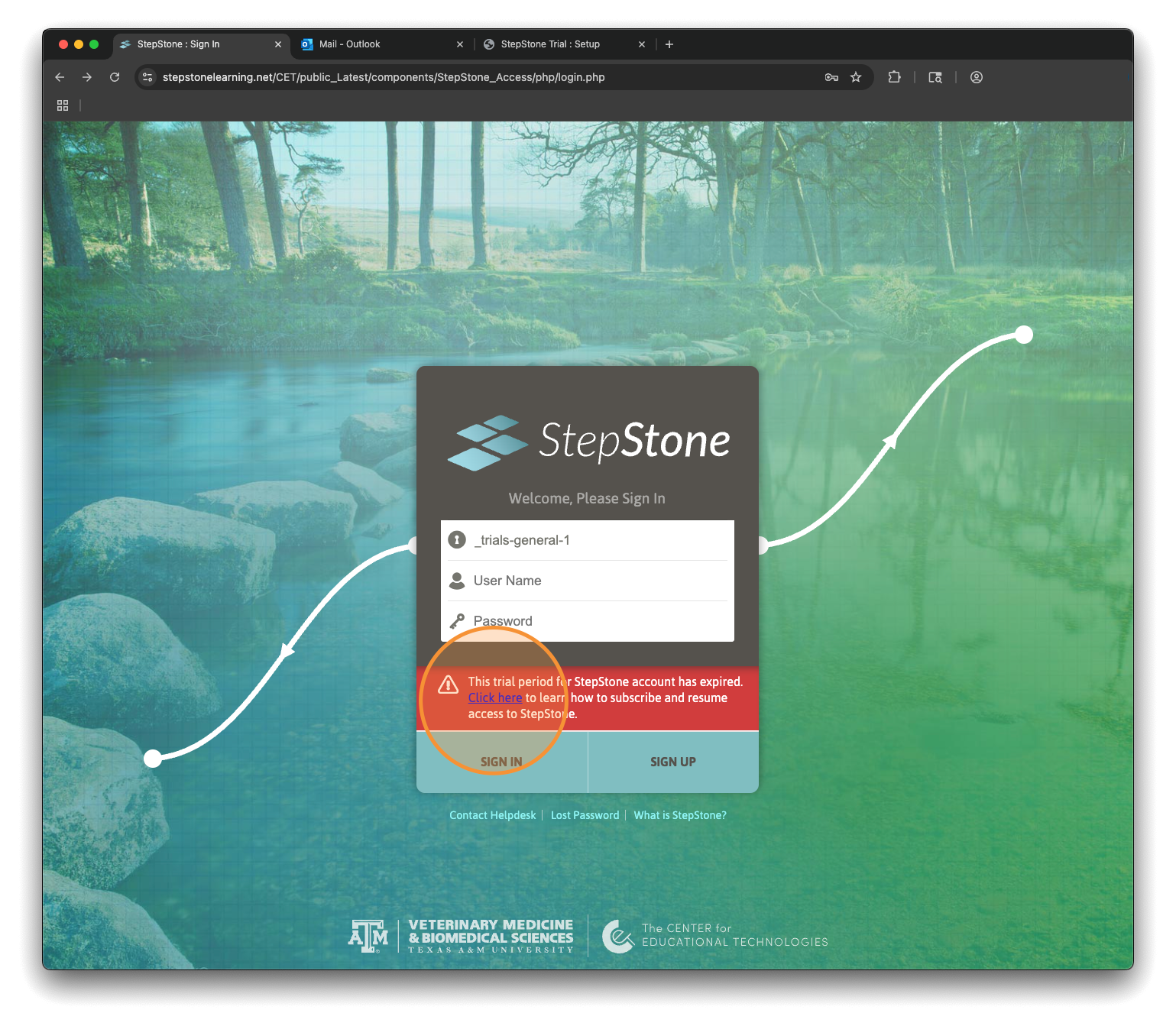
This trial-expiration alert also provides a link to a landing page that explains options for resuming access to the suspended account.
Please contact CET HelpDesk for more details regarding StepStone trial access, or to learn more about continued access to StepStone authoring tools.
